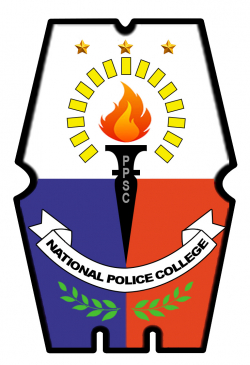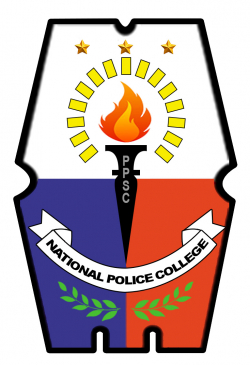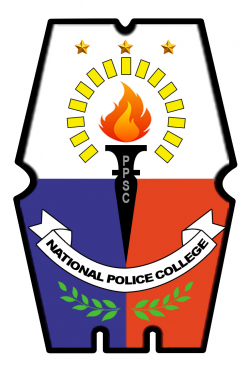SURGICAL HEALTH TEAM MANAGEMENT SKILLS AT PHILIPPINE NATIONAL POLICE GENERAL HOSPITAL: BASIS FOR PATIENT CARE MANAGEMENT

Type
Thesis
Category
PSOSEC
[ Browse Items ]
Publication Year
2015
Abstract
This study is entitled “Surgical Health Team Management Skills at Philippine National Police General Hospital: Basis for Patient Care Management”. It tried to assess the surgical health team management skills in terms of technical skills, human skills, and conceptual skills in the pre-operative and post-operative phase. Likewise, it included the problems encountered by PNPGH surgical health team and the corresponding measures to address these problems. Further, it tried to determine the significant difference in the assessments of the three groups of respondents on the effectiveness of the surgical health team of the PNPGH in managing surgical cases, problems encountered, and the proposed measures. The study utilized three groups of respondents namely: the surgery patients, the patients’ watchers, and the surgery personnel. The descriptive method of research was employed and the survey instrument was formulated by the researcher with the guidance of the thesis adviser as the primary tool in gathering the needed data. For the statistical tools, the researcher used the percentage, weighted mean and the F- test. In addition, the researcher also conducted an interview in order to validate data gathered through the survey.
After the presentation, analysis and interpretation of data, the following are the findings: the PNPGH is outstanding in terms of human and conceptual skills in the pre-operative and very satisfactory in terms of technical skills. In the post-operative phase, all variables were rated very satisfactory. The problems encountered by PNPGH were assessed as moderately serious specifically along technical skills in the pre-operative phase and along technical, human, and conceptual skills in the post-operative phase. Moreover, the proposed measures address the problems were assessed recommended particularly in technical skills in pre-operative phase and in technical, human, and conceptual skills in the post-operative phase.
Based on the findings, the following conclusion were drawn: the PNPGH surgical team possessed skills in the following; a) assessing the patient’s overall status, b) observing police protocols, c) analyzing signs and symptoms manifested by patients, d) preparing medications in accordance with patient’s condition, e) understanding patients’ mood swings, and, f) organizing post-operative discharge instruction.
The moderately serious problems affecting the management skills of the surgical health team of the PNPGH includes unauthorized practice of nurses facilitating the signing of the patient’s informed consent, inept to recognize ranking officers, limited knowledge in the analysis of patient’s signs and symptoms as manifested after operation, marginal knowledge in the operation of reviving equipment, failure to collaborate or refer information about patient’s condition, and lack of capability to thoroughly evaluate the patient’s condition after operation.
The proposed solutions to address the encountered problems were all recommended which includes requiring surgeons to assume the responsibility of getting the patient’s informed consent, observing time management in receiving the patient and chart, conducting periodic seminar-workshop or refresher course on procedures for stabilizing patient, attending trainings on the operations of reviving equipment, defining procedural policies and manuals about teamwork and coordination, and provision of surgical books as reference to guide in the analysis of the patient’s condition.
The study revealed that there is a significant difference in the assessment of the respondents in terms of technical skills in the pre-operative phase. There is no significant difference on the problems encountered in all of the variables of the study. However, on the proposed measures, there is a significant difference in all variables in terms of technical, human, and conceptual skills both in the pre-operative and post-operative phase.
Based on the results of the study, the proposed action plan focused on the development of the skills of the PNPGH surgical team centered for the delivery of surgical services. It comprises career development programs, enhance delivery of surgical services which includes a video-assisted pre-operative education, and seminar-workshop about teamwork and communication skills development, and formulation of SOP, protocol, policies and case conferences for better patient care management.
After the presentation, analysis and interpretation of data, the following are the findings: the PNPGH is outstanding in terms of human and conceptual skills in the pre-operative and very satisfactory in terms of technical skills. In the post-operative phase, all variables were rated very satisfactory. The problems encountered by PNPGH were assessed as moderately serious specifically along technical skills in the pre-operative phase and along technical, human, and conceptual skills in the post-operative phase. Moreover, the proposed measures address the problems were assessed recommended particularly in technical skills in pre-operative phase and in technical, human, and conceptual skills in the post-operative phase.
Based on the findings, the following conclusion were drawn: the PNPGH surgical team possessed skills in the following; a) assessing the patient’s overall status, b) observing police protocols, c) analyzing signs and symptoms manifested by patients, d) preparing medications in accordance with patient’s condition, e) understanding patients’ mood swings, and, f) organizing post-operative discharge instruction.
The moderately serious problems affecting the management skills of the surgical health team of the PNPGH includes unauthorized practice of nurses facilitating the signing of the patient’s informed consent, inept to recognize ranking officers, limited knowledge in the analysis of patient’s signs and symptoms as manifested after operation, marginal knowledge in the operation of reviving equipment, failure to collaborate or refer information about patient’s condition, and lack of capability to thoroughly evaluate the patient’s condition after operation.
The proposed solutions to address the encountered problems were all recommended which includes requiring surgeons to assume the responsibility of getting the patient’s informed consent, observing time management in receiving the patient and chart, conducting periodic seminar-workshop or refresher course on procedures for stabilizing patient, attending trainings on the operations of reviving equipment, defining procedural policies and manuals about teamwork and coordination, and provision of surgical books as reference to guide in the analysis of the patient’s condition.
The study revealed that there is a significant difference in the assessment of the respondents in terms of technical skills in the pre-operative phase. There is no significant difference on the problems encountered in all of the variables of the study. However, on the proposed measures, there is a significant difference in all variables in terms of technical, human, and conceptual skills both in the pre-operative and post-operative phase.
Based on the results of the study, the proposed action plan focused on the development of the skills of the PNPGH surgical team centered for the delivery of surgical services. It comprises career development programs, enhance delivery of surgical services which includes a video-assisted pre-operative education, and seminar-workshop about teamwork and communication skills development, and formulation of SOP, protocol, policies and case conferences for better patient care management.
Number of Copies
1
| Library | Accession No | Call No | Copy No | Edition | Location | Availability |
|---|---|---|---|---|---|---|
| NPC Library | 676115 | 1 | Yes |




